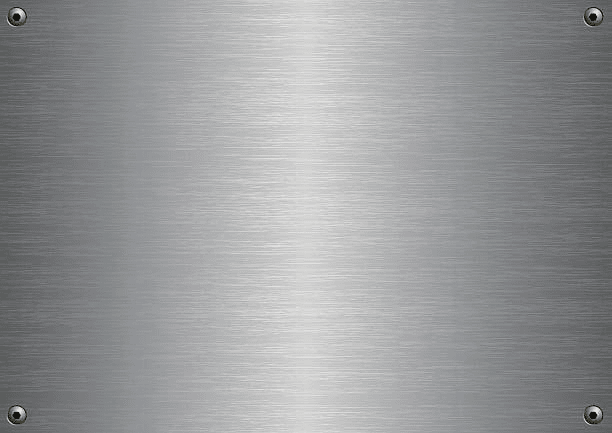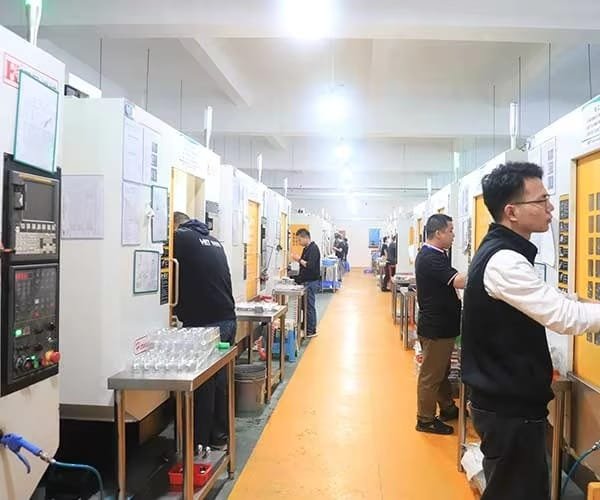Learn the application of chrome metal in cars, aircrafts, building, and production. This is a detailed explanation of hard chrome plating, alloys and industrial uses.

Chrome metal which scientifically can be described as chromium is one of the most useful and reliable metals to be utilized by the current industry. This shiny, compacted metallic compound encompasses various types of chrome, addressing a daydream of innumerable domains in industries such as automobile and aeronautical. The knowledge of the peculiar features and wide range of applications of chrome explains quite well why this metal has grown to become essential in our lives and in our industrial activities.
Chrome means much more than bumpers of cars and kitchen faucets. This amazing metal has very exceptional resistance to corrosion, hardness, and beauty, hence many people consider using it in many aspects, including achieving a mirror like finish in crafting and decoration. With the need to increase the performance material in the global industries that is the reason why chrome metal is at the centre of technological advancements and innovations.
Understanding Chrome Metal: Properties and Characteristics
The metal (chromium) has unique outstanding properties that have caused it to be very demanded in other sectors. The chrome electroplating process contributes to the hardness of this metal, giving it a Mohs hardness of 8.5 and rendering it extremely impervious to wear and scratches. This hardness, and its brilliant metallic lustre, form a perfect combination towards the purposes of protection, as well as ornament.
Chrome is perhaps best-known in its corrosion resistance. Chrome, when it comes into contact with an oxygen environment, creates a thin, unseen layer of oxide that shields the metal beneath it and stops it being further oxidized. This ability to repair itself makes decorative chrome durable even in the most abusive conditions, such that chrome can never be overrated when it comes to outdoor use as well as in the sea.
Presenting a melting point of 1,907 o C (3,465 o F) and a density of 7,19 g/cm 3, chrome is able to guarantee the aspect of exceptional thermal stability as well as the presence of significant structural stability. This along with the application of a thin chrome layer and outstanding electrical conductivity and magnetic properties makes chrome well-suited to special uses in electronics and precision instrumentation.
Automotive Industry Applications of Chrome Metal

The automotive sector is one of the biggest consumers of chrome metal since it uses the metal in a variety of ways which increase functionality and beauty. The use of a chrome layer through plating on automotive parts offers an enhanced value with regard to corrosion resistance as well as offering the luxurious glamorous shine that customers look for in relation to quality and high end cars.
Trim parts and decoratives especially the bumpers, are also advantaged because they are easily maintained in spite of road salts, moisture and even radiation. Chrome plating is a long-lasting type of plating and these parts can be kept shiny many years. This helps extend car life and the cars can be resold.
Severe temperatures and mechanical pressures are common to the engine parts hence the use of chrome alloys. The hardness and wear properties of chrome are also used in hydraulic cylinders, piston rings, valve stems, and cylinder liners to provide very tight tolerance on parts and increase life of the engines. The manner in which the automotive industry continues it use of chrome means that the metal has become part and parcel in modern day vehicle manufacturing.
Chrome Plating: Process and Industrial Applications
One of the most significant uses of chrome metal in industries is chrome plating also called chromium electroplating. It entails the deposition of a thin layer of chromium on different surfaces using electrochemical technology so as to come up with a surface that has functions along with aesthetic value.
Chrome plating starts by thorough preparation of the surface such as cleaning up, polishing and the occasional application of base coats of nickel or copper. The actual plating is done in an electrolytic bath of chromic acid whereby electrical current is used to get chromium ions that are deposited on the work-piece. This filtration may be regulated to produce certain thicknesses and specifications.
The practical applications of industrial chrome plating are far reaching to several other industries that include aerospace, manufacture equipment, hydraulic systems, precision instruments and many more. The metal finishing process adds dimensional restorative and corrosion protection wear resistance to worn parts and hence, it is an important maintenance and manufacturing process.
Stainless Steel and Chrome Alloys
Chrome is an important ingredient in process of producing stainless steel as it is the main alloying agent causing corrosion resistance. In addition to chrome content, nickel plating is also significant, with the chrome content of stainless steel usually between 10.5 and 30 percent, and greater chrome concentrations leading to greater resistance to corrosion and special qualities.
Such popular grades of stainless steel as 304 and 316 exist in dependence on chromium which creates the protective oxide covering which does not allow rust and corrosion. This makes stainless steel appropriate to use in the kitchen appliances to represent chemical processing equipment and architectural constructions.
Chrome alloys go beyond stainless steel to contain specialised materials to meet an application. The Cr-containing tools steels offer very good wear abrasion resistance and exceptional hardness, whereas chromium is used in alloys with good oxidation resistance under high temperatures. Aerospace, production of power, and manufacturing industries are in need of these alloys.
Aerospace and Defense Applications
The aerospace sector is one of the sectors that require high-quality materials that can work in harsh conditions, and yet the material does not affect the structure and functionality. Chrome metal and alloys, including specific aerospace components, are able to satisfy such strict requirements and that is the reason they are invaluable in aircraft and spacecraft manufacture.
The components of jet engines are made of chrome alloy which gives the property of strength and resistance to corrosion in high temperatures. Chrome is used as turbine blades, where the temperature is high, combustion chambers and exhaust systems due to the thermal stability and oxidation resistance of chrome. This coupled with the retention of properties with high thermal cycling conditions finds the metal suited in aerospace applications.
Chrome is used in defense where its hardness and wear resistance is exploited in armor and weapon systems, and military vehicles. Its capability to resist ballistic impact and still retain structural integrity would make the metal of value in protective equipment and vehicle armor system.
Construction and Architecture Uses
The chrome metal is extensively used in construction and architectural purposes because it offers a great variety of durability, aesthetics, and low level of care and maintenance which presents it as most desired. Facade, railing, and decorative plating of buildings use the characteristics of chrome to retain surface look and be tolerable to environmental conditions.
Chrome possesses strength and lack of corrosion retardant which is useful in structural applications especially in the mariner or humid surrounding. Fasteners, brackets, and the support system is chrome plated giving extensive performance and minimum maintenance.
The aesthetic value of chrome also goes to uses inside buildings and other indoor uses; its reflective nature and modern design perfectly fit with the design style of the days. Chrome is used in elevators, fixtures and decorative works to form highly upgraded and long lasting installations.
Manufacturing and Industrial Equipment
The manufacturing industries largely use chrome metal in manufacture of equipments that are to be made to endure the under demanding conditions of having to operate continuously. Chrome is as hard and wear resistant as industry requires machine tools, manufacturing equipment, and industrial components to be finely-tipped, and spend a longer amount of time in service.
Chrome plating of the cylinder rod is specially useful in hydraulic systems to reduce friction and avoid leaks in the fluid. Chrome is suitable at a hydraulic application in different industries due to its dimensional stability and corrosion resistance.
The use of chrome in the manufacturing includes specialized use in printing machines, textile machines, and food processing machines. Considering its capability of ensuring sanitary conditions and withstanding chemical attack, metal can be applied where there are high standards of cleanliness.
Electronics and Technology Applications
Chrome metal is used in electronics industry in a number of its special applications where it is expected to have certain electronic and magnetic characteristics. Chrome thin films applications include semiconductor manufacturing applications where electrical properties are a key to the device performance.
Magnetic storage devices use chrome alloy as an element due to its peculiar magnetic character whereas chrome is used as an electronic component whereby the reason used is its electrical conductivity and lack of corrosiveness. This is because of the stability of the metal during thermal cycling hence its use in electronic applications exposed to temperature variations.
The use of chrome in technology is spread over to specialty coatings in optical uses where the reflective and resistive nature of chrome has better performance than any other material. All these applications indicate the role of chrome in developing technological abilities.
Marine and Offshore Applications
Seasons of the ocean have their distinct problems which can only be solved by the use of chrome metal. Saltwater exposure and UV radiation accompanied by mechanical stress demand the exceptional corrosion resistance and durability of materials.
Cleats, winches, and rigging hardware should be chrome plated which will offer protection to these marine components over a long period without interfering with their functions. This metal can resist both pitting and crevice corrosion so it is suitable to use in marine applications.
Offshore platforms and marine structures employ the use of chrome alloys due to the valuable property of holding up to highly destructive environments. The metal is resistant to stress corrosion cracking and fatigue which qualifies it to be used in critical marine work.
Medical and Healthcare Industry Uses
Chrome metal is used in the medical industry in many ways (as a biocompatible, corrosion-resistant, easily sterilized substance). The special properties of chrome are used in surgical instruments, hospital equipment and medical devices to increase the life of equipment by guaranteeing safety of the patient.
The chrome plating of the medical instruments would give a smooth non-porous surface, which is non-contentious to the bacteria, and it also enhances sterilization. The compatibility of the metal to go through repeated autoclaving processes without losing its properties is the reason why it is used on repeatable medical equipment.
The use of chrome alloys provides implantable technology and prosthetics with corrosion and biocompatibility properties, which work well with the human body. The property of the metal to blend with the biological tissues and also retain structure makes it useful in the field of medicine.
Decorative and Consumer Applications
The aesthetic value of the chrome metal has come in handy in ornamental use in consumer products which has also contributed to its popularity. Chrome also makes house ware, furniture fittings, and ornaments man-made products with beautiful finishes and resistant properties.
Faucets used in kitchen and bathrooms are especially well served by the style meeting with the functionality of chrome. Faucets, handles and trim, have their looks and appearance, and they are resistant to corrosion and wear over time. The maintenance and cleaning ease also contributes to chrome popularity in such applications.
Chrome is used in consumer electronics and appliances either as a design feature or functionality feature. Reflectivity of the metal along with contemporary look does not only follow modern tendencies in design but also offers durability and inhibits corrosion of the metal.
Environmental and Sustainability Considerations
With the dependence on sustainability by industries, the environmental effects of the chrome metal production and utilization have gained significance. The mining and processing of chrome is an activity that has demanded great environmental handling so that the ecology can be touched as little as possible, and that the right use of resources can be guaranteed.
In the sustainability program, the recycling of materials that contain chrome is very important. An example is stainless steel wherein considerable chromium is recovered through recycling and thus used again in other applications. The economic incentives have been gained in terms of recycling programs that minimize environmental disturbances due to the high value of chrome.
The environmental rules and top procedure of handling and disposal should be put into consideration by the industries in chrome that engage in this process. Experience in handling chrome containing waste streams should be competent enough to handle the wastes to legally acceptable levels but with the most possible recovery of resource.
Future Trends and Innovations in Chrome Applications
Advanced technology and varied demand in the industry keep bringing a change in the future of the applications of chrome metal. Nanotechnology applications are examining the types of chrome plating properties at the molecular level, which can lead to new applications in electronics, medicine, and materials science thin dense chrome.
More accurate control over the properties of chrome and its applications is being made possible through the advanced manufacturing techniques of copper plating. Chrome utilization is discovering new territories in the light of additive manufacturing, thin-film deposition, and surface engineering technologies.
Science is still working to find new chrome alloy and composite materials of better properties depending on their intended use. The innovations hold the potential of extending the sphere of chrome use in upcoming innovations as well as enhancing the performance in those already in existence.
Economic Impact and Global Chrome Trade
The market of chrome in the world is a strong sphere of economy, its production and trade is carried out on several continents. The South African, Kazakhstan and Turkey are major producers of chrome with its consumption concentrated in the industrialized and large manufacturing countries.
Chrome prices and supply affect a number of industries including automotive manufacturing, construction and aerospace. The prices in the market may also affect the cost of production and the supply of products that are dependent on chrome, a factor which emphasizes the economic significance of the metal.
The chrome trade is logistically demanding, and needs to be given special solutions to handle and transport. There are companies such as Shenzhen Guanwutong International Freight Forwarding Co., Ltd. (GWT Worldwide) that are needed in the transportation of chrome and other metals being imported/exported. By engaging in global freight forwarding and supply chain solutions, GWT Worldwide is a professional logistics service provider which helps to process international trade of the chrome materials through various services provided by them namely air freight, sea freight, China-Europe railway transport and customs clearance. As they are also the masters of dealing with industrial materials and offering services of Amazon FBA shipping, they are quite helpful partners in the business of chrome trade.
Conclusion
The flexibility of Chrome metal properties and its wide utilization has made it a material that cannot be not be dispensed with in many industries. Whether it is in the production of automobiles, aeroplanes, buildings or computers, chrome still comes in to give solutions that are not only useful, but also long lasting and spectacular. This unusual combination of hardness, resistivity, corrosion, and shine of the metal makes its use in contemporary technology and manufacture vital.

